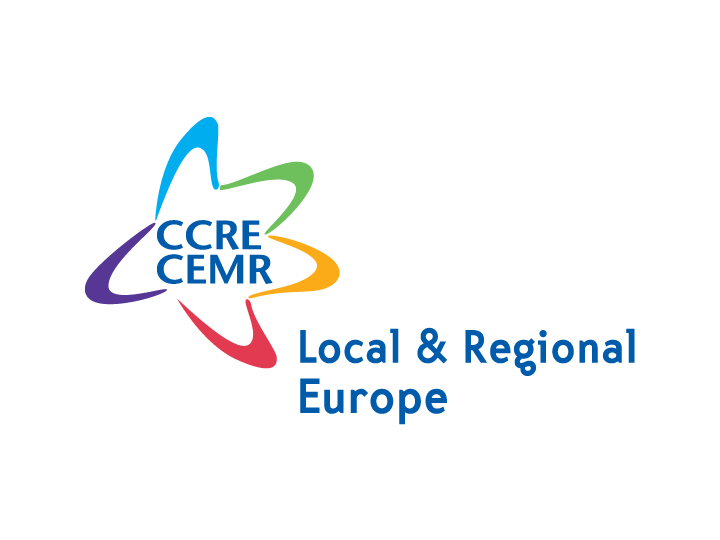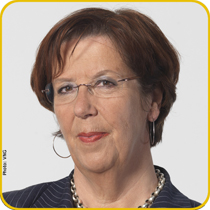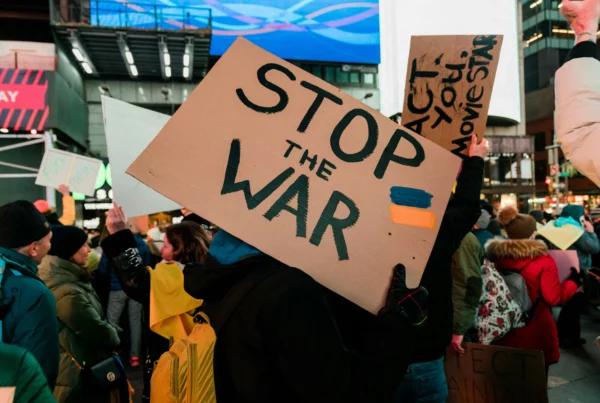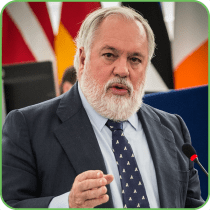CEMR interviews Annemarie Jorritsma for 100th anniversary of Dutch municipalities
At the occasion of the 100th anniversary of one of its Dutch member association, the Association of Netherlands Municipalities (VNG), the Council of European Municipalities and Regions (CEMR)'s interviewed VNG president and CEMR co-president, Annemarie Jorritsma. Jorristma is also mayor of the City of Almere.
VNG’s 100th anniversary marks the beginning of the municipal movement in Europe and constitutes an important step in ensuring local democracy. In this context, what do you believe to be VNG’s greatest achievement?
VNG has contributed to a self-conscious, open and citizen-oriented "first government" in which all citizens can participate. Our association has developed itself as a strong, permanent interlocutor towards our central government. In its role as advocate/lobbyist for a strong local government and as a service provider for municipalities, it supports the quality of local government. Municipalities are assisted by the VNG, which provides standard models for local regulations, guidance, best practices, a large European and international network and everything else that a professional service and lobby organisation can provide where national coordination and exchange of knowledge is required. As a result of VNG’s work, many laws have been reviewed and adapted to fit municipal standards. This has helped local government in the Netherlands to achieve and safeguard a high level of local democracy.
How do you see the role of municipalities and cities evolve in the next hundred years in the Netherlands and Europe?
I see an important role for municipalities and cities in providing services and bettering quality of life, as well as in contributing to an inclusive democracy. Municipalities are currently confronted with two crises. The first is, obviously, the financial and economic crisis. Central governments are making important budgetary cutbacks (and as a result local governments as well) and decentralise more and more tasks towards municipalities. In addition to this, municipalities must adapt to demographic trends like an ageing population and immigration. In order to perform more tasks with less money, municipalities must proceed in an innovative and smart manner to provide answers to these developments. The second crisis is a crisis in the relationship between the government and citizens. The local level plays a crucial role in overcoming this crisis. In Europe, which is an ever increasing political arena/entity, there is a growing sense among civilians that it does not affect/influence public administration. It is therefore, important that citizens be able to continue participating in local democracy and to co-decide. Municipalities are ideally suited to fulfill that need. Local democracy is the future. A supranational government should be balanced with a European network of local democracies.
What are, in your opinion, the main challenges for local and regional authorities in the coming years both in the Netherlands and in Europe?
Vision. It requires vision to carry out more tasks with less money and to overcome the crisis in the relationship between the government and citizens. Therefore, the VNG continues to invest and innovate in its relations with members and with municipalities in the whole of Europe. A key role in this may be fulfilled by pressure groups, which are also members of VNG and which share special needs and interests. In the Netherlands, G4 and G32 are well known examples of such groups, which represent the four largest cities and the 34 medium sized cities (G32). The VNG’s future challenge will be to create more room for these groups within the VNG instead of operating next to the VNG. The new VNG strategy, which is named ‘Powerful municipalities, strong VNG’ elaborates further on this philosophy. Besides that, European cooperation on a local level will be challenged due to governmental cutbacks. Therefore, it is crucial to maintain an outward looking and open attitude in order to effectively pursue our vision. Europe provides chances in this respect, for example through budgetary support for international cooperation.
VNG is an active member within CEMR, of which you are co-president, as well as within the international organisation, United Cities and Local Governments (UCLG). What message would you like to send your European and international counterparts on behalf of VNG and at the occasion of this special anniversary?
A 100th anniversary means a time for reflection. We should hereby reorientate ourselves to an ever-changing environment, continue to work for the common interest, and ensure that the provision of services for members remains a central part of our activity. VNG has been and will continue to be passionate when pursuing this vision and strives to achieve this by connecting with its international partners. Therefore, we remain engaged, with the involvement of everyone This approach involves a number of important elements, which include providing focus to our organisation’s work, organising exchanges between municipalities and their representative association’s central office, ensuring visibility of the work of CEMR and UCLG, and remaining an active actor in the European community.
rn

Climate, Sustainable Finance Officer





